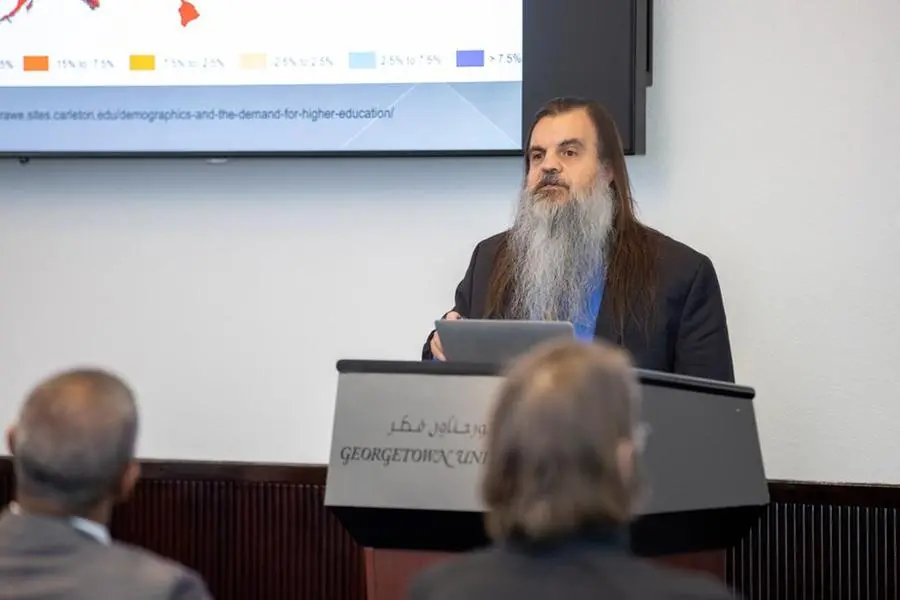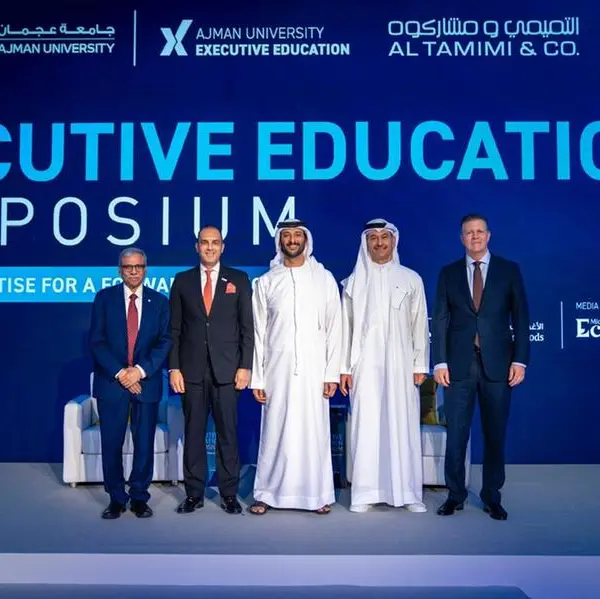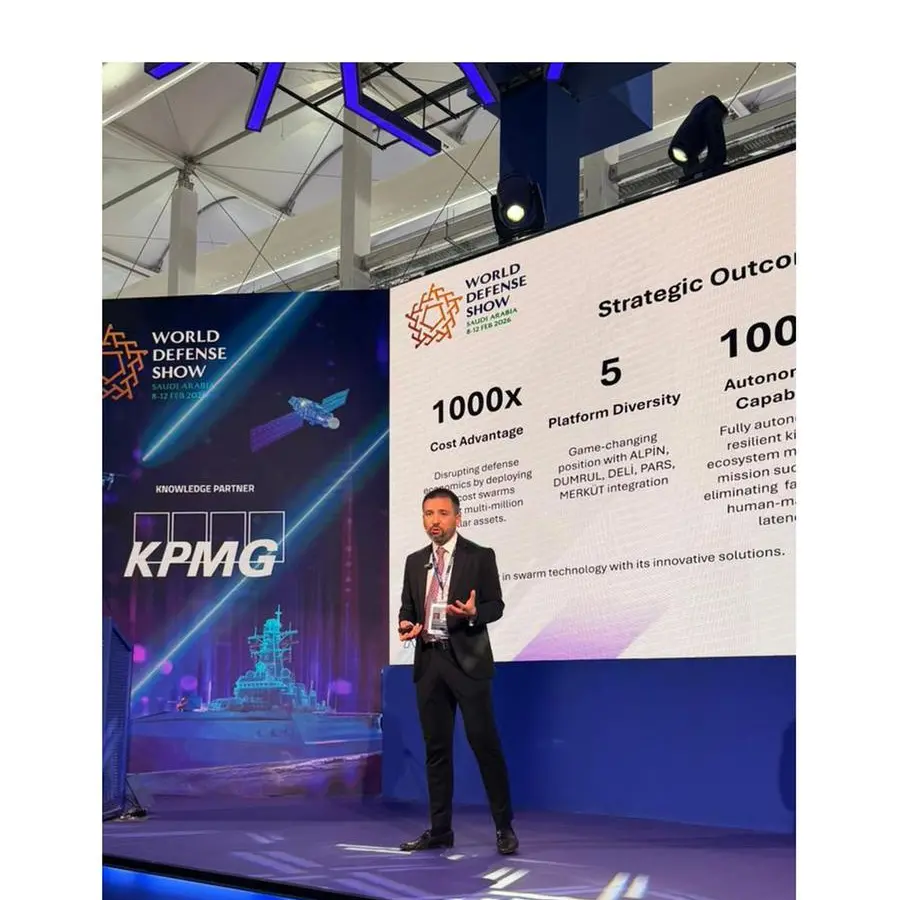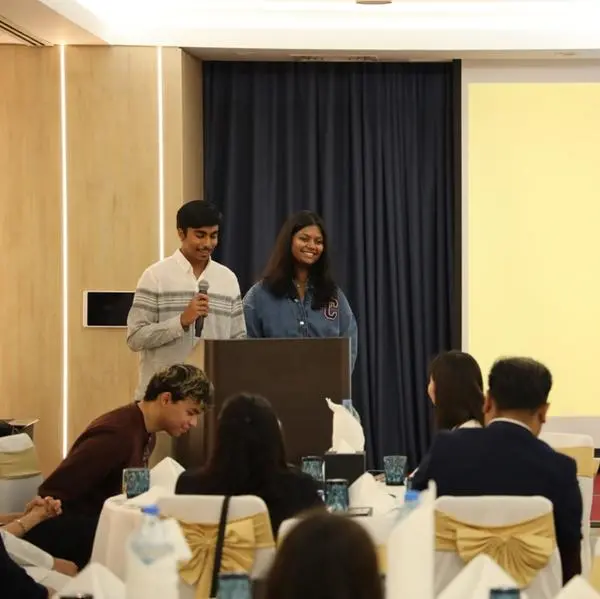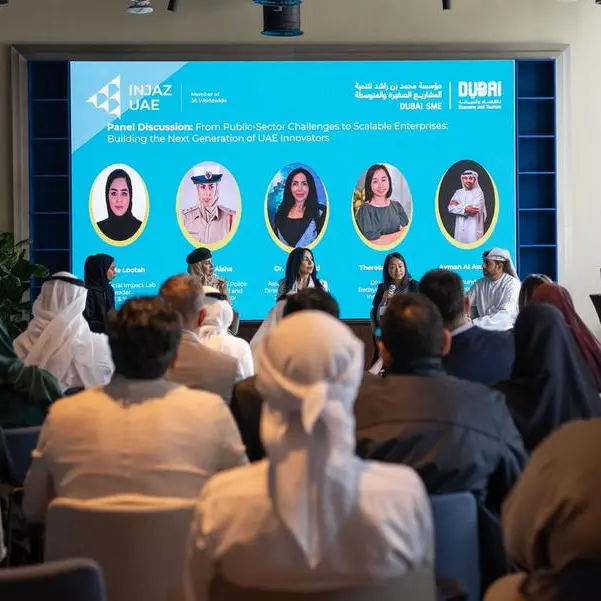PHOTO
Doha: The future of higher education, the forces driving its transformation, and its potential to provide solutions to an increasingly unstable world were explored by the internationally known futurist, researcher, and author Bryan Alexander at a public talk hosted by Georgetown University in Qatar (GU-Q).
Touching on the themes of his award-winning book, Academia Next: The Futures of Higher Education, Dr. Alexander considered the trends being shaped by artificial intelligence (AI) and climate change, which he termed “the biggest challenge facing higher education and the human race.”
A senior scholar at Georgetown University in Washington, DC, Dr. Alexander first explored the cultural attitudes towards AI, and its present and future value in higher education.
“We’re kind of freaked out by AI when we logically use it, but we’re also scared that it’s going to clog our labor market, that it may be inhumane, or of it becoming the Terminator,” he said, identifying the key fears around AI. He went on to explain the positive uses for AI, such as collaboration, brainstorming, and simulation, arguing for the need to prepare students for the changes ahead, whether those come in the form of new jobs that do not currently exist, or having to work more closely with AI in almost every job and profession.
Dr. Alexander then turned to the subject of climate change, warning that the transformations taking place affect everything from physical spaces to what is being taught, how, and to whom. Referencing his new book, Universities on Fire: Higher Education in the Age of Climate Crisis, he highlighted several solutions to this crisis, but emphasized the power of higher education.
“What we know about climate change now is driven largely by academic research; researchers around the world are studying this problem, so universities and colleges play a contributory role to our understanding.” He also pointed to new approaches, which highlight higher education’s “immense intellectual horsepower across all domains,” including campus movements which creatively imagine positive human experiences in response to climate change.
Dr. Alexander’s talk also explored the impact of demographic changes and global geopolitical instability on universities, and the pressure to improve the quality and quantity of students. “We may see more general support for students, services for taking care of students’ mental, spiritual, and physical health, helping them with politics or careers. In Georgetown culture, it’s called ‘cura personalis’ (care for the person). We may also see curricular changes start to happen,” he suggested.
With universities responding in different ways, he discussed the adoption of the international university strategy, where campuses become a place to encounter multiple ethnicities, religions, and languages, and understand global cultures and the global economy. It is a direction where Qatar is ahead of many other countries, he noted.
Bryan Alexander’s public talk concluded a series of engagements with GU-Q that included strategy sessions with faculty and staff, and engagement with students. Dr. Jamie Olsen, Manager of Instructional Design and Educational Technology, said: “We are grateful to engage with Bryan in this critical discussion concerning AI’s impact onin higher education, and how we can best respond during this time of change.”
GU-Q is accepting applications from all students interested in pursuing their studies in Culture and Politics, International Politics, International Economics, International History, and more, with an admissions deadline of February 1. Prospective students can learn more at https://www.qatar.georgetown.edu/admissions/.
About Georgetown University in Qatar
Established in 1789 in Washington, DC, Georgetown University is one of the world’s leading academic and research institutions. Georgetown University in Qatar (GU-Q), founded in 2005 in partnership with the Qatar Foundation, builds upon the world-class reputation of the university through education, research, and service. Inspired by the university’s mission of promoting intellectual, ethical, and spiritual understanding, GU-Q aims to advance knowledge and provide students and the community with a holistic educational experience that produces global citizens committed to the service of humanity.
Georgetown’s unique, interdisciplinary program prepares students to tackle the most important and pressing global issues by helping them develop critical thinking, analytical, and communication skills within an international context. GU-Q alumni work in leading local and international organizations across industries ranging from finance to energy, education, and media. The Qatar campus also hosts the Executive Master in Diplomacy and International Affairs along with the Executive Master’s in Leadership graduate degree programs.
For more information, please contact Nahla El Sherif
